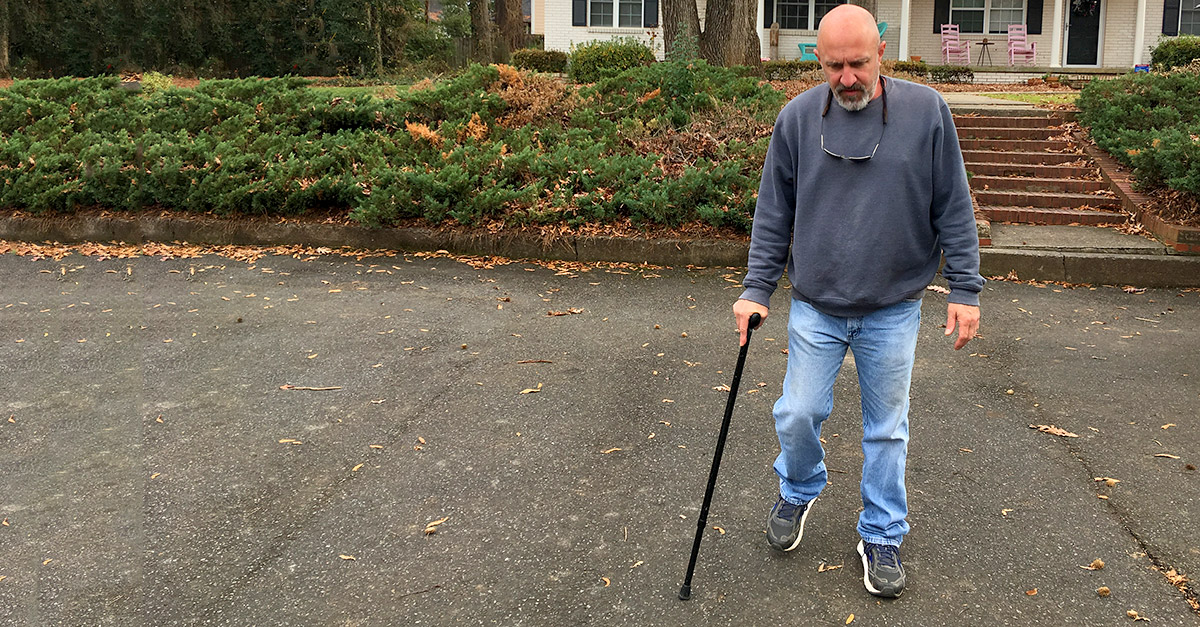
“Your best days are ahead of you. The movie starts when the guy gets sober and puts his life back together; it doesn’t end there.” – Bucky Sinister
Todd Hastings was in lock down at a city hospital where he’d been for nine months after a massive stroke from Wernicke’s encephalopathy.
His years of substance abuse, along with excessive drinking, had led to a thiamine deficiency, that brought on his stroke the night he was arrested. Fortunately, the officer called paramedics instead of simply throwing him in the drunk tank.
In that hole called “rock-bottom,” it seemed impossible to believe Todd’s best days were still ahead.
After almost a year in Carolina Medical Center, with most of his memory lost in the damaged areas of his brain, Todd started his eight-year trip to recovery.
Addiction snuck up on Todd. He was a normal enough kid, with okay grades in school and even some college. But like so many of us, the best times always included alcohol. He would usually stick with beer, but when there was enough cash, Dickel was his choice.
He never thought of himself as a problem drinker. After all, he’d gotten married, had a daughter, and held down a good job. But every night he would take their dog for her walk – alone.
Todd thought he had the problem hidden, just like the stash he put behind a bush, under some pine straw, and down by the creek. But soon his marriage crumbled. Even when she and their little girl moved out, he thought he would be fine. After-all, he still had his job.
And then he didn’t. Now all Todd had was a bunk in a rehab facility, somewhere deep in the North Carolina mountains.
Those years of confinement were hard on Todd. Sharing a cramped room with guys he didn’t know, after years of living with his wife and child, were miserable.
Sometimes the others would break down and sneak off for a covert drink of aftershave or mouthwash, just to ease their withdrawal pain.
Staying sober wasn’t easy, but the hardest part was finding something to do with his mind. Looking back was too fuzzy and the future was hard to make out, especially with no drugs or alcohol for support. Each day’s struggle was in living only for the now.
Soon, all those “nows” formed a pattern called sobriety. Today, that’s the new normal for Todd; one he couldn’t remember since a very young age.
After eight years of more rehabs than he can remember, Todd is back in Charlotte. He’s still in a supportive home but with more freedom. It’s a freedom he’s earned on his own, in spite of his captive past.
I caught up with Todd at a coffee shop near his new room. The damage to his brain has affected his ability to walk, so his travel now is with one slow, walking-stick aided, step at a time.

An addiction is any compulsive activity that interferes with ordinary responsibilities. It could be drugs, alcohol, smoking, gambling, shopping, yoga, gaming, even social media.
Addiction is a reaction to stress and is frequently switched to other addictive actions. Maybe that’s why reformed drunks become successful in their new setting.
Our conversation was friendly, but every once in awhile he’d stop and stare somewhere in the distance … then he’d smile and return. “It’s coming together, I’ve got it now. It was when I moved into that place at Black Mountain…” and he’d continue his story. The blank spots in his conversations are fewer these days, as his healing continues.
Optimism is uplifting and despite brain damage, physical limitations, and the loss of so many years, Todd is now making plans. First, he’ll get his own place and maybe take in some work, picking up where he left off with furniture restoration. Then he wants to earn back his driver’s license and buy an old car.
He wants to keep busy, that’s for sure. He might start a small garden to grow root vegetables. They’re high in B-1 and good for his condition, he’s learned.
Then, when everything’s settled, Todd would like to meet the right girl. Someone he can talk with, to share stories and dreams. There’s hope in how Todd now believes his best days are ahead. After all, today he’s clean and he’s sober.
Todd didn’t choose addiction, addiction chose Todd. It silently entered his life, and then without knowing his disease had moved in.
Now Todd Hastings is opening the scenes of this movie as a new man of fifty. He’s putting his life back together, one day and one step at a time.
“Pop,” as Todd calls him, agrees. Todd’s dad, Paul, introduced us and they both want you to share this story – it’s their choice and their way of offering help.
Being an addict was never Todd’s choice, being sober was.
Can you tell me of times you needed to make a decision, a choice? What choice did you make?
If you have a story that could inspire others to start a new movie of their own, then this is your time to speak up.
As always, the conversation starts here.

Oh my heavens what a heart wrenching story this is! I wish the best for him for the rest of his wonderful life. He is definitely in my prayers. Thx for sending Bruce.
Helen – I’m glad I have gotten to know Todd. Yes, his story is heart wrenching, yet as sad as it is, it’s also a story of strength, even in the worst anxiety. I’m sure it often seemed like returning to the comfort of his addiction would have been a better choice, but Todd had set his sights on a different life. Early in his treatment the doctors had prepared him for the possibility of never walking or having any sort of normal life, but Todd just continues to take one step at a time, one day at a time,… Read more »
Such a strong man. He is a real fighter. I wish him the best at new chapter of his life. Thanks Bruce for sharing his amazing journey.
Sedi –
We both share these feelings for Todd. Thanks for your comment.
– Bruce